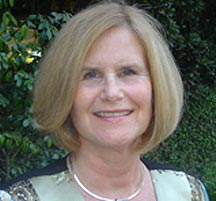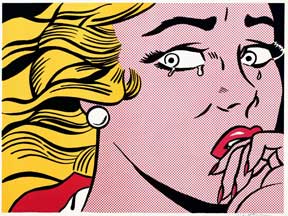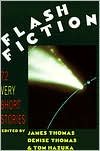Interview with Gay Degani, First Place Winner of the Winter '09 Flash Fiction Contest

Gay Degani, a former community college instructor in English, lives in Southern California with her husband and ancient Labrador retriever. She's been published in two mystery anthologies, in THEMA Literary Journal and on-line at Every Day Fiction, Flash Fiction Online, Tattoo Highway, and Salt River Review. “Spring Melt” was a finalist for The 2nd Annual Micro Fiction Award and has been nominated for a Pushcart Prize. “Monsoon” was a finalist in Glimmer Train’s 2007 Fiction Open and “Wounded Moon” was short-listed for the 2008 Fish Short Story Prize.
Gay’s blog is Words in Place and she is the editor of Flash Fiction Chronicles for Every Day Fiction.
You can read her work online: Losing Ground at Tattoo Highway, The London Eye at Every Day Fiction, Listing Lisa at Salt River Review, and Spring Melt is a 2008 Micro Fiction Finalist and a Pushcart Nominee.
Interviewed by Marcia Peterson
WOW: Congratulations on your first place win! What inspired you to enter the contest?
Gay: Thanks for the congrats! It was most exciting to get an email from a friend with a capitalized “CONGRATULATIONS” in the subject line. I was wondering, what the heck? Then when I read why, I was jazzed! Wow! Literally WOW!
I found WOW! Women on Writing’s Flash Fiction Contest when a friend won a similar prize. I’m always on the prowl for places to submit my writing. Although there are many venues on the internet, much of my fiction seems to sift through without sticking. It seems to be too “on-the-nose” for many online lit sites and not genre enough for others, so I take advantage of every opportunity.
WOW: Can you tell us what encouraged the idea behind your story?
Gay: This story was born when a woman from a nearby town was sideswiped by a car and killed while out for a Sunday bike-ride with her husband. I didn’t know her personally, but the suddenness of her death shook me. I began to think about how it would feel to have my life completely reversed by such an event.
As I do with everything that causes that little niggle in my brain, I asked, “What if that had been my husband?” My answer was “walls.” I’d build walls around myself and never go out. That was the genesis of this piece.
WOW: I loved "Beyond the Curve," and thought you created a great opening sentence, which is important in capturing the attention of your readers. I also liked the title, with its deeper, double meaning. How much work do you put in to your opening lines and story titles? Do you spend a lot of time tweaking them?
Gay: Since I started writing online flash fiction, I’ve learned the importance of first sentences. When someone reads on a monitor, he or she can click through to so many different sites with so little effort, it becomes essential for a writer to seduce that reader immediately with vivid images using specific detail. The reader wants a picture to see right away, the wart on a character’s face, the gleam of light off a skyscraper, a mangled bicycle. With that image, he or she willingly reads on to find out what next.
As for titles, I usually have a working title that comes from my first inspiration, but often it ends up being discarded because it tells too much too soon. I need the working title to keep me focused on the juicy parts of the story, but once I’m finished, I look for something more suggestive and symbolic.
One of the things I love to do most is to try to have double meanings where ever I can, but part of the challenge is that it must be subtle. It’s hard to find the right balance between the obvious and the obscure, and when it works, I’m thinking, “YES!”
WOW: It’s always interesting to learn about a successful writer’s process, thank you. You’re also the editor of Flash Fiction Chronicles. This looks like a great resource for writers. Can you tell us about the site and what visitors might expect?
Gay: I was lucky enough to find Every Day Fiction when I decided to try to publish online. I had a short piece I’d done as an exercise in Gordon Mennenga’s class at the University of Iowa’s Summer Writing Festival ( a great place to spend a week surrounded by writers). When I read “One Question” in front of the group, it was first time Gordon said to me, “Now that’s a piece of professional writing!”
I sent it off to EDF and they published that piece and eventually more of my work. They even nominated “Spring Melt” for the Pushcart Prize. There’s a list of my online stories at my blog, Words in Place.
When the editors of EDF asked if anyone would volunteer to run a blog for the e-zine, I raised my virtual hand. They gave me carte blanche to do what I wanted, and Flash Fiction Chronicles was born. The site is dedicated to the discussion of the art and craft of flash fiction, fiction in general, and the issues of writing, marketing, and publishing today. I’m always looking for submissions from writers at all levels, from beginner to professional.
WOW: I found lots of great posts there, and I think others will enjoy it too. You’re doing a great job! Aspiring authors would probably love to know about your writing routines. For example, where do you write? How many hours (or words) a day do you write?
Gay: Oh-oh. I wish I could say I manage to bang out hundreds of words a day, but I’m somewhat sporadic. When a story has juice for me, I think about it all the time, write notes on napkins, tell my husband “shhhhh,” and hide in my garage office because if I don’t deal with that story right away, it might lose its juiciness.
I sit down at the computer every morning. I work on either a short piece of fiction or my novel. This is always a battle for me. The novel is long range gratification and is sometimes trumped by an email announcing a contest for a 1000-word piece. This provides INSTANT (relatively) gratification. I give in. New characters, new story. What fun!!!
But what I understand and what I say to others is finishing something is crucial. Get to the end while the juice is still dripping from my mouth. You can edit later.
WOW: Good advice! What writing projects are you working on right now? Do you have goals in mind for the rest of the year?
Gay: My goal is to finish editing my mystery novel, What Came Before. This is a must-do enterprise. I love the story which centers around a woman who investigates the murder of a sister she didn’t know she had and while doing so, uncovers the reasons for her own mother’s suicide.
WOW: Sounds like a great story, and we wish you luck with the editing work. Do you have any final words of wisdom for our women readers/writers?
Gay: Work hard. You have the power to learn what you need to know.
Don’t fall in love with your own words. There are more where those came from.
Write what you love to read. Write what you want to write.
Observe everything. There’s a story in every popcorn kernel on the floor.
Trust in yourself and don’t take anything too seriously. Be joyful.
* * * * * * * *
>Check back on Tuesdays for interviews with more Winter ’09 Flash Fiction winners.
>For details on WOW! Women on Writing's current contest, head on over to our contest page.
Labels: flash fiction contest winner, Gay Degani, Marcia Peterson, WOW flash fiction contest, WOW Winter 2009 Contest Winner













